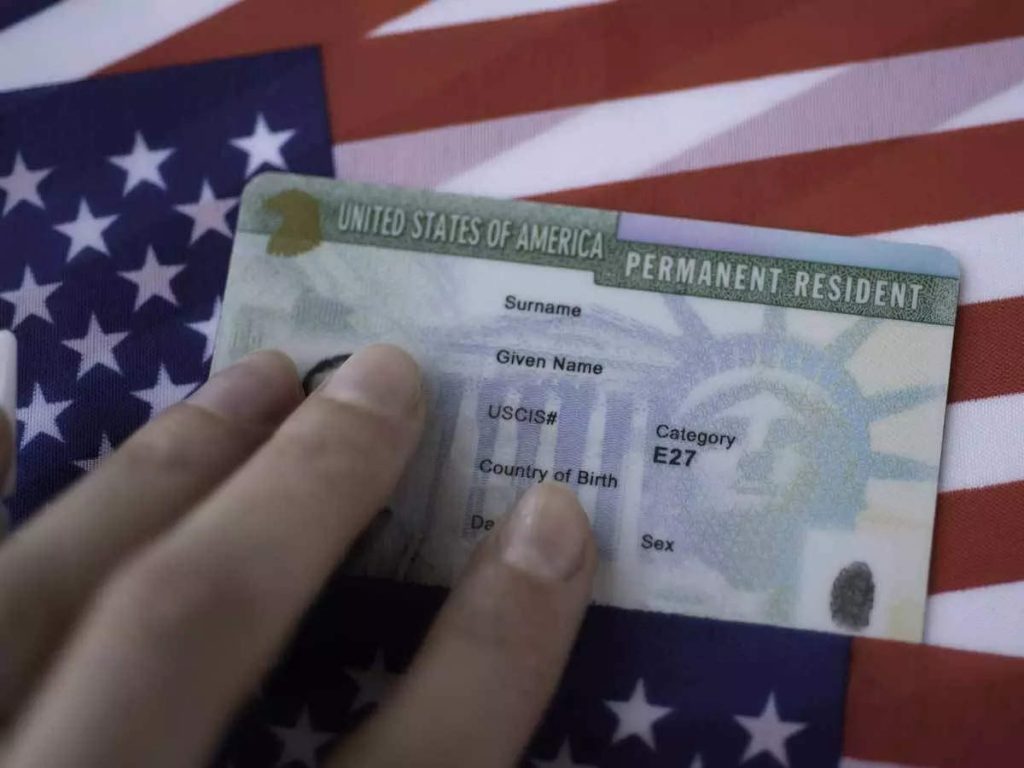
Many people who want to live and work in the United States of America go through the process of obtaining a green card. A number of ways exist that allow you to gain permanent residency or citizenship, each depending on your current status, ties to your home country, etc. The first step is figuring out if you are even allowed to apply for permanent residency, this will depend on factors such as nationality, marital status, and ability to invest. We have outlined below all possible routes towards US immigration.
“Please note that none of the following content should be taken as legal advice or guidance since laws change regularly.”
Family-Based Immigration Categories
If you are a fiancé, spouse, or child (under 21) of US citizen you can apply for a green card through the following categories:
Immediate Relative of US Citizens or Family Preference Category
For spouses, parents, and children of US citizens, you can follow one of the two most common ways to obtain permanent residency in the United States. The process is often long, expensive, and requires several steps so it is important that you contact an immigration attorney who will help you understand all the necessary documents required. You need to prove that your sponsor (US citizen or permanent resident) has enough income/assets to support both himself and his dependents at 125% above the poverty level. Here are both paths with their respective requirements. If your spouse becomes a citizen before you receive your green card there are some advantages such as waiving future interviews and less paperwork. To learn more about the requirements and advantages we highly recommend reading this guide.
NOTE: ALL FAMILY MEMBERS (CHILDREN INCLUDED) MUST BE PRESENT IN THE USA TO START THIS PROCESS – IF NOT THEY WILL BE BARRED FROM ENTERING THE USA FOR LIFE! Once you have received your green card if your husband is a US citizen he has to file Form I-130 for your children and then they can follow or accompany you in the immigration process.
1. Immediate Relative of US Citizen
If one of the most important reasons behind applying for permanent residency status is to be reunited with your spouse/children; this category might be for you. The Immediate Relative category allows you to apply for a green card without having to wait for your reference number (if any) to come up. This category is reserved for spouses, parents, and unmarried children of US citizens only.
You will only be able to submit your application upon proof of the following:
The main advantages of this route: speed and fewer restrictions on yearly quotas. The disadvantages: more red tape and higher financial requirements than other family-based categories.
2. Family Preference Category
This path is available if one or both of you are related by birth, marriage, or adoption (except spouse/children). There are several categories under which you can file but it comes down to these three types: 1st Preference (Unmarried adult children of U.S. citizens) 2nd Preference (Spouses and unmarried children under 21, of permanent residents) 3rd Preference (Married children, adult sons/daughters & their spouses and children).
Requirements are similar to the Immediate Relative category but there are additional ones in terms of annual quotas. For instance, if you are married to a US citizen you have to wait until a visa becomes available or your priority date is reached for this preference. This takes place around the 15th-18th month after your priority date has been received by USCIS. If you are filing under family preference categories it is important that both husband and wife meet all the requirements since they both become ineligible for visas if one spouse does not meet requirements.
For the 1st and 2nd preferences you will need to show:
If you are a US citizen and can prove that you have enough income to support your spouse at 125% above the poverty line your spouse may only need to provide proof of his or her identity, relationship to you as a family member, and their age if over 14 years old. This is all subject to change so we suggest checking with an immigration attorney for details. Furthermore each year there is an annual limit of 226,000 visas issued for this category which has created backlogs in the past. To learn more about this route please read our guide here. The biggest disadvantage with this option is definitely the waiting period – especially true if filing under the third preference category. It is almost impossible to predict when you will be able to file your application, which has resulted in many immigrants being separated from their family members for years.
3. Family Preference Category with a US Citizen Husband
This path is available if one or both of you are related by birth, marriage, or adoption (except spouse/children) but this time your in-laws are also US citizens. There are several categories under which you can file but it comes down to these three types: 1st Preference (Unmarried adult children of U.S. citizens.) 2nd Preference (Spouses and unmarried children under 21, of permanent residents) 3rd Preference (Married children, adult sons/daughters & their spouses and children)
Requirements are similar to the Immediate Relative category but there are additional ones in terms of annual quotas. For instance, if you are married to a US citizen you have to wait until a visa becomes available or your priority date is reached for this preference. This takes place around the 15th-18th month after your priority date has been received by USCIS. If you are filing under family preference categories it is important that both husband and wife meet all the requirements since they both become ineligible for visas if one spouse does not meet requirements.
Similar to the first two preference categories most creditable evidence submitted will be subject to review by a consular officer at a US embassy or consulate, who will make a final adjudication of whether or not you are qualified to receive a visa. Again, this is all subject to change so we suggest checking with an immigration attorney for details.
For more information, you may ask or consult with immigration lawyers in Houston.







